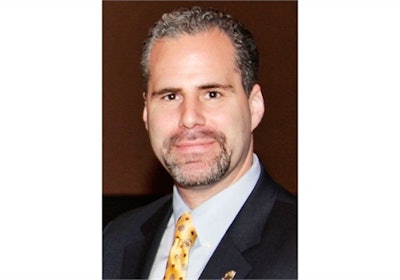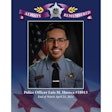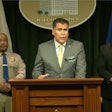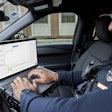
Most adult Americans know what "going postal" means. So why are Postal Police Officers prohibited from carrying firearms on postal grounds when they enter and depart from their tours of duty?
The United States Postal Service (USPS) maintains a policy that requires officers to secure their government-issued firearms at work at the end of their tours. I think that's a flawed policy, but I accept that the agency has the right to dictate policy regarding its guns. What I don't accept is exposing officers to great risk by preventing them from carrying their personally owned firearms in a limited manner on job grounds. It is disheartening when an agency's legal counsel makes officer safety decisions based on paranoid "what if" scenarios vs the harsh realities of "what is."
Postal Police Officers are sworn law enforcement officers with statutory arrest authority under Title 18, United States Code 3061. They receive the same tactical training as other federal uniformed law enforcement components, and qualify with their government-issued firearms at least twice a year. They in effect function as the USPS's uniformed officers while the Inspectors serve as the criminal investigators. There are 572 sworn Postal Police Officers employed among 17 states, including 19 high-crime cities.
All postal facilities are configured differently, and most do not provide secured parking for officers. Therefore, the option of securing a personally owned weapon in a trunk lock-box is not a prudent option. Furthermore, that would not provide the officers with any tactical coverage during their movements from and to their vehicles. They would be vulnerable to targeted attacks, as well as be unprepared to engage in an active-shooter response.
Ambushes are a major concern for law enforcement officers, regardless of agency. In January 2016, Philadelphia Officer Jesse Harnet was ambushed in his patrol vehicle because he was a symbol of law enforcement. In July, Dallas and Baton Rouge officers were assassinated because they proudly wore police uniforms. In total, 21 law enforcement officers were fatally wounded during ambush attacks last year. Yet, the Postal Service thinks it's acceptable to expose unarmed officers to ambush attacks.
To worsen matters, in September 2014 USPS personnel data was compromised by a cyber attack. The data breach included the theft of the personal information for all Postal Police Officers, including home addresses and family members' names. Subsequent to the breach, the USPS took no steps to strengthen protections for its officers. The obvious options were to either authorize 24/7 carry of their government-issued firearms, or allow them to carry their personally owned weapons onto and off Postal premises during tour changes. Unfortunately, the USPS went for a different option of ignoring the heightened threat.
Other federal agencies trust their officers to carry their duty weapons 24/7, or permit them to carry their own weapons and secure them on job premises. For instance, approximately seven years ago, the Federal Law Enforcement Officers Association (FLEOA) raised a similar concern with former DHS Secretary Janet Napolitano regarding Federal Protective Service (FPS) officers. Secretary Napolitano recognized the officer safety concerns and ultimately authorized 24/7 carry. Similar concerns were also raised regarding the Veterans' Affairs police force. Management instituted a policy that allowed officers to carry their own firearms onto VA premises and secure their weapons there. Other agencies such as the U.S. Capitol Police and the U.S. Secret Service trust their uniformed officers to carry 24/7. But for some unknown reason, the USPS apparently doesn't trust its officers.
As we all know, the spirit of the Law Enforcement Officers Safety Act (LEOSA), along with its amendments, was to increase the armed law enforcement presence in our country. September 11, 2001, set off the alarm, and Congress ultimately responded, albeit years later. Yet somehow, the USPS missed that alarm, and the many others that have followed.
Denial of risk does not equip officers with the means to defend themselves from a targeted attack. The USPS is doing both its officers and its customers a disservice by limiting the means by which the Postal Police can protect and serve. Postal Officers should be able to defend themselves and protect postal customers from someone "going postal." I am confident the new Administration will intervene and correct this critically important officer safety issue.
Jon Adler is the president of the Federal Law Enforcement Officers Association Foundation.














